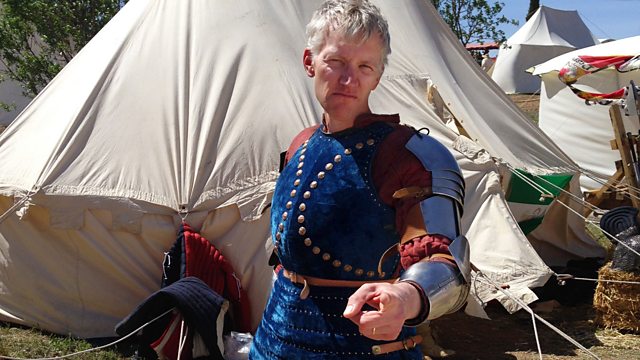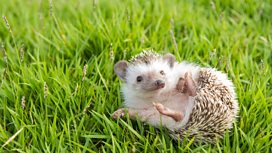Witches, poison and why the hedgehog was unloved in history
Remembering the victims of the so-called Witchfinder General, how poison was commonplace in the medieval world and why our poor, threatened hedgehogs went unloved 400 years ago.
Helen Castor is joined in the studio by the historian of witchcraft, Professor Owen Davies.
Historian Tom Charlton travels to Manningtree in North Essex - the scene, in the 17th century, of a series of witch-trials instigated by the so-called Witchfinder General Matthew Hopkins. Hopkins has gained notoriety for these and other brutal acts against women but he is the one who is always remembered - not the victims. Now a local woman, Grace Carter, wants a #MeToo moment so that the women are not forgotten. Professor Alison Rowlands, who studies witchcraft across Europe, joins Tom to help Grace sort out fact from fiction as she plans a monument to this painful past.
The poison attack on the former Russian spy Sergei Skripal in Salisbury caused consternation around the world. Skripal and his daughter were in hospital for weeks and were lucky not to have been killed by the nerve agent used against them. Poisoning seems a very underhand act today but, back in the Middle Ages when knowledge of the natural world was more instinctive, it was commonplace. Indeed, as Iszi Lawrence found out, natural poisons were at the root of medieval medicine.
Our modern world, with its fast roads and industrial farmland, is no place for hedgehogs and their numbers are in serious decline. Perhaps it's the threat to their numbers or the affectionate portrayal of Mrs Tiggy Winkle by Beatrix Potter, but we seem to be very fond of this prickly mammal. Four hundred years ago, things were very different. Hedgehog numbers were healthy but people thought they were witches and hunted them. To find out why, Tom Holland has been spending the night spotting hedgehogs in an Oxfordshire garden with natural history writer Hugh Warwick.
Producer: Nick Patrick
A Pier production for ������̳ Radio 4.
Last on
![]()
The adorable mammal with a dark past...
Guests
Helen Castor is joined in the studio by .
The Manningtree Witches
meets up with Grace Carter who has started a to finance a memorial to the women of Manningtree in North Essex who lost their lives during the wave of persecution in the seventeenth century that we know as the Her ambition is to challenge the established focus on the actions of the so-called ‘Witchfinder General and shine a light on the victims in the town.
The historian of witch-trials in Early Modern Europe, ,is on hand to explain how these women were tried and how for more than a year in the 1640’s Hopkins terrorised the of England.
Poison Plants
The poisoning of a former Russian intelligence officer and his daughter in the medieval city of Salisbury sent shockwaves around the world. The use of deadly nerve agents in such a way is highly unusual and potentially deadly. In the past, poison was found only in the natural world and toxic plants were at the root of our health-care, used by both women healers and male physicians�� –�� not to mention spies and the calculating political class intent on getting rid of enemies and even difficult members of the family…
��
Iszi Lawrence visited to find out more about the use of poisonous plants in the past. There she met up with ��who works on Plant Systemics and Evolution, and Professor ��who works on magic and miracles in the medieval world.
Hedgehog
According to the , one in five British mammals are at risk of extinction. The poor hedgehog is one of them: its numbers are down 70% in 20 years. Today the �� is a much-loved gardener’s friend but for centuries few people cared for them. They were unwanted, unloved harbingers of ‘bad stuff’. So why have we become so protective of them? Tom Holland met up with to find out why.
��
Making History is produced by Nick Patrick and is a Pier Production for ������̳ Radio 4������
Broadcast
- Tue 19 Jun 2018 15:30������̳ Radio 4 FM
Podcast
-
![]()
Making History
Popular history series where the past connects with the present.



